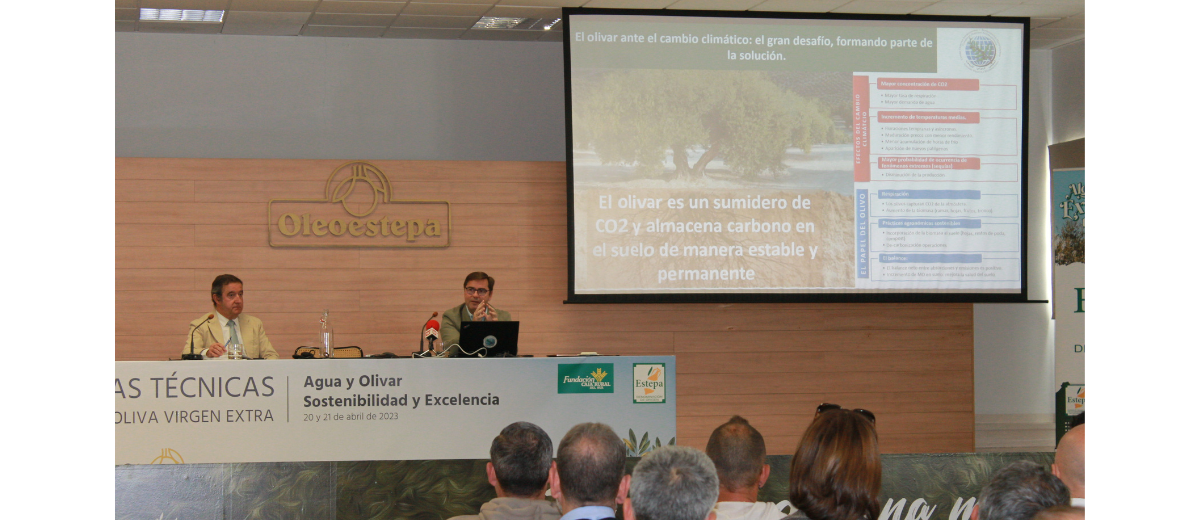Olive trees are resistant to climate change
On Monday 18 March, the IOC took part in a technical conference on the carbon credit market in the framework of olive groves, organized in Seville (Spain) by Oleoestepa S.C.A. Around 60 sector stakeholders, including farmers and cooperative technicians, gathered to discuss the fundamental role played by olive trees acting as carbon sinks, and to assess the current situation and future opportunities for olive groves within the carbon credit market.
The IOC was represented at the conference by Juan Antonio Polo Palomino, Head of the Olive Oil Technology and Environment Department. He highlighted that the olive tree is naturally resilient to climate change and that the best-known adaptation strategies, such as effectively using water resources through regulated deficit irrigation and improving the tree’s genetic variety, are highly efficient. Additionally, he noted that a soil capable of storing CO2 is, in fact, a healthy soil. Such soil not only enhances its structure and conductivity but also provides defence against erosion.
Polo emphasized that taking care of the soil’s health via known sustainable agronomic practices, such as plant covers, significantly improves an olive grove’s operating account, thus making it economically sustainable as well. Regarding the future voluntary carbon credit market, he underscored that the IOC is working tirelessly to ensure that the olive grove’s environmental service is recognized as an effective CO2 absorption mechanism. It’s imperative for olive groves to access the voluntary carbon credit market with a specific scheme within the certification framework currently under development by the EU.










